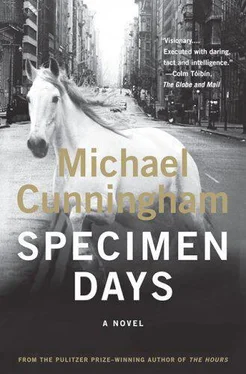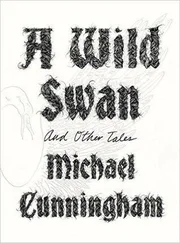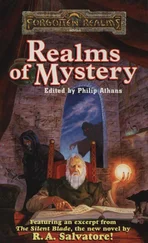Michael Cunningham - Specimen Days
Здесь есть возможность читать онлайн «Michael Cunningham - Specimen Days» — ознакомительный отрывок электронной книги совершенно бесплатно, а после прочтения отрывка купить полную версию. В некоторых случаях можно слушать аудио, скачать через торрент в формате fb2 и присутствует краткое содержание. Город: New York, Год выпуска: 2005, ISBN: 2005, Издательство: Farrar, Straus and Giroux, Жанр: Современная проза, на английском языке. Описание произведения, (предисловие) а так же отзывы посетителей доступны на портале библиотеки ЛибКат.
- Название:Specimen Days
- Автор:
- Издательство:Farrar, Straus and Giroux
- Жанр:
- Год:2005
- Город:New York
- ISBN:0-374-70515-1
- Рейтинг книги:4 / 5. Голосов: 1
-
Избранное:Добавить в избранное
- Отзывы:
-
Ваша оценка:
- 80
- 1
- 2
- 3
- 4
- 5
Specimen Days: краткое содержание, описание и аннотация
Предлагаем к чтению аннотацию, описание, краткое содержание или предисловие (зависит от того, что написал сам автор книги «Specimen Days»). Если вы не нашли необходимую информацию о книге — напишите в комментариях, мы постараемся отыскать её.
Specimen Days — читать онлайн ознакомительный отрывок
Ниже представлен текст книги, разбитый по страницам. Система сохранения места последней прочитанной страницы, позволяет с удобством читать онлайн бесплатно книгу «Specimen Days», без необходимости каждый раз заново искать на чём Вы остановились. Поставьте закладку, и сможете в любой момент перейти на страницу, на которой закончили чтение.
Интервал:
Закладка:
He found her sitting up in bed, holding the music box on her lap.
“Good morning, Mother,” Lucas said.
“Oh, Simon,” she said. “We’re sorry.”
“It’s Lucas, Mother. Only Lucas.”
“I was speakin’ to your brother, dear. In the box.”
For a moment Lucas thought she meant the box that was in the earth across the river, until she looked wistfully down at her lap. She meant the music box.
He said, “Simon isn’t there, Mother.”
She lifted the box in both hands and held it out to him. “You listen,” she said. “Listen to what he says.”
“You haven’t wound it.”
“Listen,” she said again.
Lucas turned the crank. The small music started up from within the box. It was “Oh, Breathe Not His Name.”
“There he is,” Mother said. “Do you hear him now?”
“It’s only the music, Mother.”
“Oh, sweet child, ye don’t know, do ye?”
Lucas was all but overcome by a weariness that struck him like fever. He wanted only to sleep. The music box, playing its little tune, felt impossibly heavy. He thought he would sink to the floor and lie there, curled up like a dog, so fast asleep that no one and nothing could wake him.
He was responsible for the music box, because he had so wanted the horse on wheels. He’d lost himself, contemplating it. The horse was white. Where must it be now? It was long gone from Niedermeyer’s window. It looked steadily forward with round black eyes. Its face bore an expression of stately gravity. Its wheels were red. He’d gazed at it every day, until one afternoon, passing Niedermeyer’s with his mother, he gave over to his desire for the horse as he gave himself over to the book, and wept like a lover. His mother had put her arm tenderly over his shoulders; she’d held him close. They’d stood there together as they might on a train platform, watching a locomotive bear its travelers away. Lucas’s mother had stood patiently with him, holding him as he wept for the horse. The next day she’d gone out and bought the music box, an extravagance his father said would be the ruin of them. His mother had laughed bitterly, told him he was miserly and fearful, insisted that they needed music, they deserved a bit of cheer every now and then, and a music box would not spell the end of the world no matter what it cost. Later, Father turned to leather, and the machine took Simon, and Mother went into her room.
Lucas said, “It’s only music, Mother.”
“I know what he’s saying now. I know the language he speaks.”
“You should go back to sleep,” Lucas told her. “I’m going to put the music box in the parlor for a while.”
“He’s all alone in a strange land.”
“I must go. I can’t be late for work.”
“We brung him here from Dingle. It’s only right we should go to him where he is now.”
“Goodbye, Mother. I’m off.”
“Farewell.”
“Farewell.”
He left the bedroom and put the music box on the parlor table, where his father still sat, awaiting breakfast. “Goodbye, Father,” he said.
His father nodded. He had acquired an infinite patience. He would come to table at the appointed hours, eat if food was offered him, not eat if food was not.
At the works, Lucas had to struggle to pay proper attention. His mind wanted to wander. He aligned a plate, pulled the lever, and then was at the back of the machine, inspecting the impressions, with no memory of having gotten there. It was dangerous, a dangerous condition to bring to the machine, and yet he could not seem to do otherwise. Trying to think only of his work align, clamp, pull, pull again, inspect was like trying to remain awake when sleep was overwhelming. Inattention took him like dreams.
To steady himself he set his mind to the whisper in the machine. He listened carefully. It might have been the squeak of an unoiled bearing, but it sounded more like a voice, a tiny voice, though its words were indistinguishable. It had the rhythm of a voice, the rise and fall and rise again suggesting intention rather than accident, the tone implying a certain urgency more human than mechanical, as if the sound were being made by some entity struggling to be heard. Lucas knew well enough what it was to speak a language no one understood.
He fed it another plate and another and another.
The nature of the machine’s song didn’t disclose itself until afternoon. The song wasn’t sung in language, not in a language Lucas recognized, but gradually, over time, the song began making itself clear, even though its words remained obscure.
It was Simon’s voice.
Could it be? Lucas listened more carefully. Simon’s voice had been deep and raucous. He had sung not well but with bravado, with the rampant soaring tunelessness of someone who cared less about sounding beautiful than about creating a sound big enough to reach the sky. This seemed, in fact, to be Simon’s voice, rendered mechanical. It had that reckless, unapologetic atonality.
The song was familiar. Lucas had heard it elsewhere, at a time and place that hovered on the outer edge of memory. It was a song of melancholy and yearning, a sad song, full of loneliness and a thread of hope. It was one of the old ballads. Simon had known hundreds of them.
Simon was imprisoned in the machine. It made sudden, dreadful sense. He was not in heaven or in the pillow; he was not in the grass or in the locket. His ghost had snagged on the machine’s inner workings; the machine held it as a dog might hold a man’s coat in its jaws after the man himself had escaped. Simon’s flesh had been stamped and expelled, but his invisible part remained, trapped among the gears and teeth.
Lucas stood dumb before the singing wheel. Then, because he must not stop working, he loaded another plate. He aligned, clamped, pulled, pulled again, and inspected. In his mind he sang a duet with Simon, matched him note for note, as the hours passed.
At day’s end, Jack came to say, “All right, then.” Lucas desperately wanted to ask him if he knew about the dead in the machines, but he couldn’t seem to manage a question as large as that, not right away. He began by asking instead, “Please, sir, when do we get paid?” It seemed better to say “we” than “I.”
Jack said, “You get paid today. Go to accounting after you’ve shut down.”
Lucas could scarcely believe it. It seemed he had produced his pay by asking for it; that if he had failed to ask he’d have worked on and on for nothing, and no one would have remembered. He said, “Thank you, sir,” but Jack had already left him, to say “All right, then” to Dan. Lucas hadn’t had time to ask anything more. Still, he was glad to know there’d be money tonight. Tomorrow he would ask Jack the other, more difficult question.
Lucas shut down his machine. He said good-night to Simon and went with the others to receive his pay from the men in the cages. With money in his pocket, he set out for home.
When he arrived, all was as ever. His father sat in his chair, his mother dreamed or did not dream behind the closed door. Lucas said to his father, “I have money. I can buy us a proper supper. What do you think you’d like?”
“Ask your mother,” he said.
That was an answer from former times, when his mother was herself. Lucas said, “I’ll go see what I can get, then.”
His father nodded agreeably. Lucas leaned over to kiss him.
It was then that he heard it. The same song, steady, pining, the little song of love and yearning.
It came from his father’s breathing machine.
Lucas put his ear closer to the mouth of the tube. It was there, softer than soft, inaudible to anyone who didn’t seek it. It was the same song, sung in the same way, but by a voice gentler and breathier, more like a woman’s. It came, he thought, from the little bladder at the machine’s base, rose up through the tube, and issued from the opening, the slender oval of horn, where his father put his mouth.
Читать дальшеИнтервал:
Закладка:
Похожие книги на «Specimen Days»
Представляем Вашему вниманию похожие книги на «Specimen Days» списком для выбора. Мы отобрали схожую по названию и смыслу литературу в надежде предоставить читателям больше вариантов отыскать новые, интересные, ещё непрочитанные произведения.
Обсуждение, отзывы о книге «Specimen Days» и просто собственные мнения читателей. Оставьте ваши комментарии, напишите, что Вы думаете о произведении, его смысле или главных героях. Укажите что конкретно понравилось, а что нет, и почему Вы так считаете.












